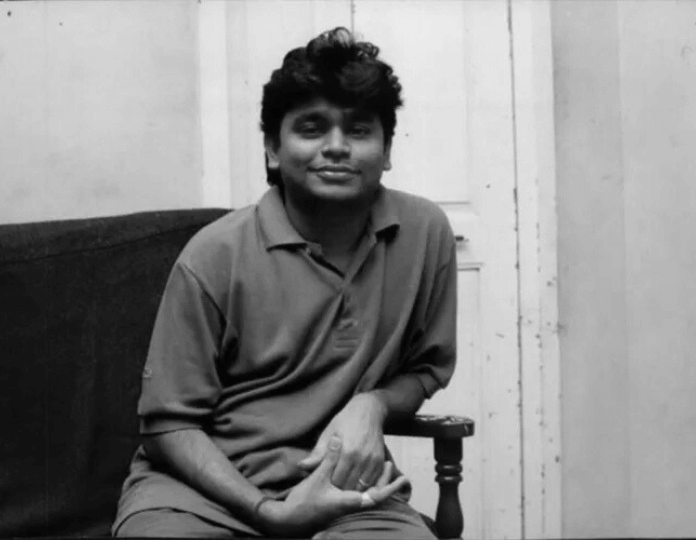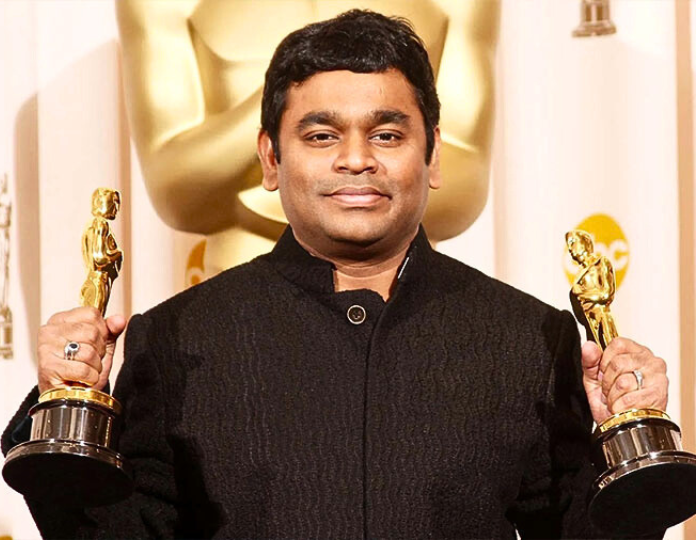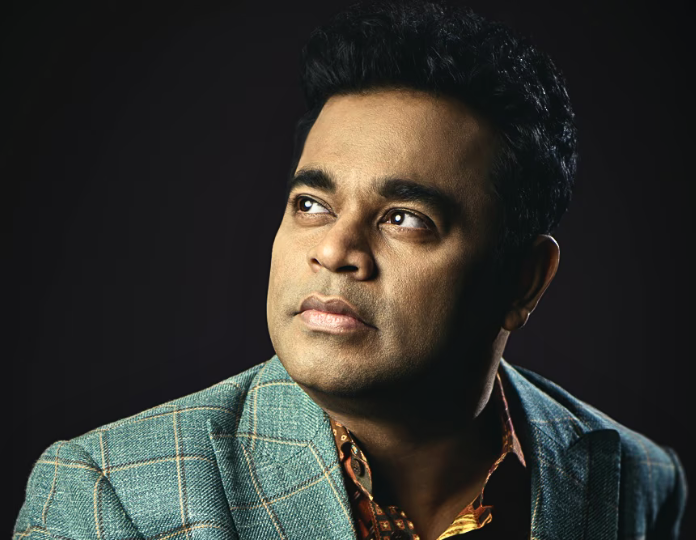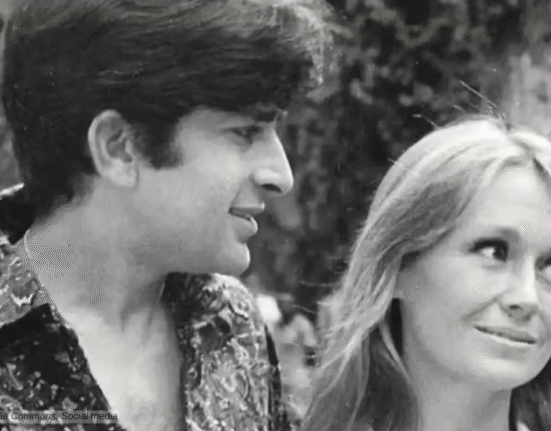Fondly called “Isai Puyal” and “Mozart of Madras,” AR Rahman is a music composer, record producer, singer, songwriter, musician, multi-instrumentalist, and philanthropist. He is a winner of six National Film Awards, two Academy Awards, two Grammy Awards, a BAFTA Award, a Golden Globe Award, fifteen Filmfare Awards, and seventeen Filmfare Awards South. In 2010, the Indian government conferred him with the Padma Bhushan, the nation’s third-highest civilian award.
Early Life
Musical genius Allah Rakha Rahman, born A.S. Dileep Kumar on January 6, 1967, in Chennai, to R.K. Shekhar, a composer and conductor for Tamil and Malayalam films, and Kasturi, aka Kareema Begum. Tragically, his father passed away when Rahman was just nine years old, leaving the family in financial hardship. He studied at Padma Seshadri Bala Bhavan and Madras Christian College Higher Secondary School, Chennai.
As a child, AR Rahman appeared on the Doordarshan program “Wonder Balloon,” and played four keyboards at once. Rahman initially learnt music under Master Dhanraj, began working as a session musician to support his family, and worked with many big names like M. S. Viswanathan, Vijaya Bhaskar, Ilaiyaraaja, Ramesh Naidu, Vijay Anand, Hamsalekha, and Raj–Koti. He also accompanied Ustad Zakir Hussain, Kunnakudi Vaidyanathan, and L. Shankar on world tours. He eventually earned a scholarship to Trinity College of Music in London, where he graduated with a degree in Western classical music.
He Changed The Face Of Music

Rahman’s career in the music industry began with composing jingles for advertisements. His big break came with Mani Ratnam’ to compose the score fo’s the Tamil film “Roja” in 1992. The soundtrack was a massive success and marked the beginning of Rahman’s illustrious career in film music. The music of Roja earned him the National Film Award (Silver Lotus) for Best Music Director.
Riding on the success of Roja, he then gave iconic music to films like Yoddha (1992, Malyalam), Pudhiya Mugam (1993, Tamil), Gentleman (1993, Tamil), Thiruda Thiruda (1993, Tamil), Kizhakku Cheemayile (1993, Tamil), Karuththamma (1994, Tamil), and Kadhalan (1994, Tamil).
Rahman’s music is characterised by its innovative use of technology and fusion of different musical styles. He blends traditional Indian music with electronic music, world music, and orchestral arrangements. This unique combination sets him apart from his contemporaries. Rahman’s ability to create complex and layered compositions that resonate with a wide audience is a testament to his genius.
AR Rahman Came To Bomaby
In 1995, he gave music for his first Hindi movie, “Rangeela,” which made a huge uproar on music charts. His subsequent work on films like Bombay (1995), Indira (1995), Mr. Romeo (1996), Indian (1996), Kadhal Desam (1996), Pelli Sandadi (1996, Telugu), Guru (1997, Malayalam), Minsara Kanavu (1997), Iruvar (1997), Daud (1997), Fire (1997), Dil Se (1998), Taal (1999), Earth (1999), Sakhi (2000, Telugu), Pukar (2000), Zubeidaa (2001), Saathiya (2002), Tehzeeb (2003), Meenaxi (2004), Yuva (2004), Swades (2004), Naani (2004, Telugu), Water (2005), and Nuvvu Nenu Prema (2006, Telugu) further cemented his reputation as a musical innovator.
AR Rahman was one of the first composers to extensively use digital technology in his compositions. His use of synthesisers, electronic instruments, and computer-generated sounds revolutionised Indian film music. Rahman’s ability to layer different sounds and create intricate arrangements is a hallmark of his music. He often records at odd hours, a practice that has become part of his creative process.
Continuting Success
In 2001, he gave music to Ashutosh Gowarikar’s Academy Award-nominated “Lagaan.” The success of Lagaan gave him international exposure and boost his popularity in west. For the film, Rahman collaborated with veteran Javed Akhtar and created some of the most beautiful fusions of modern music and Awadhi folk. In 2003 he got a chance to make music for the Chinese production “Warriors of Heaven and Earth,” directed by He Ping.
AR Rahman next big film was Rakeysh Omprakash Mehra’s “Rang De Basanti (2006),” which brings him and Prasoon Joshi together for the first time, and the result was not less than mesmerizing. The duo gave one of the best music albums of the 21st century, consisting of gems like “Ik Onkar,” “Rang De Basanti,” “Masti Ki Paathshaala,” “Tu Bin Bataaye,” “Khalbali,” and “Roobaroo.” It also has one of the most heartbreakingly beautiful lullabies of all time, “Luka Chhupi,” sung by the living legends Lata Mangeshkar and Rahman.


International Acclaim
AR Rahman’s international breakthrough came with the soundtrack for Danny Boyle’s “Slumdog Millionaire” (2008), where he reunited with Gulzar. The film won him two Academy Awards for Best Original Score and Best Original Song for “Jai Ho.” He also got a BAFTA and a Golden Globe for the film. He again collaborated with Danny Boyle for the 2010 film “127 Hours,” which earned him two Academy Award nominations and a BAFTA nomination.
Some of his international collaborations include Provoked (2007), Bombil and Beatrice (2007), Elizabeth: The Golden Age (2007), Couples Retreat (2009), People like Us (2012), Million Dollar Arm (2014), The Hundred-Foot Journey (2014), Pele (2016), Viceroy’s House (2019), Blinded by the Light (2019), No Land’s Man (2021), and Le Musk (2022). He also worked on Majid Majidi’s Persian film Muhammad: The Messenger of God in 2015.
Later Work
With over 145 film scores in various languages, including Tamil, Hindi, Telugu, Malayalam, and English, Rahman is probably the most successful music composer of his time. Some of his other notable films include Jodhaa Akbar (2008), Jaane Tu… Ya Jaane Na (2008), Ghajini (2008), Delhi-6 (2009), Raavan (2010), Enthiran (2010), Rockstar (2011), Jab Tak Hai Jaan (2012), Raanjhanaa (2013), Highway (2014), Tamasha (2015), O Kadhal Kanmani (2015), Mohenjo Daro (2016), Sachin: A Billion Dreams (2017), Kaatru Veliyidai (2017), Beyond the Clouds (2018), 99 Songs (2022), Ponniyin Selvan (2022), Pippa (2023), Maidaan (2024), Amar Singh Chamkila (2024), and many more.
AR Rahman’s music is characterised by its innovative use of technology and fusion of different musical styles. He is known for his ability to create complex and layered compositions that resonate with a wide audience. His work often features a blend of Indian classical music, electronic music, and world music, making his sound both unique and universally appealing.
One of Rahman’s most famous compositions, “Maa Tujhe Salaam,” is part of his album Vande Mataram. The album also has a rare gem, “Gurus of Peace,” by Ustad Nusrat Fateh Ali and Rahman. In 1999, A.R. Rahman collaborated with Shobana, Prabhu Deva, and a Tamil dance troupe to perform with Michael Jackson at his Munich concert called the Michael Jackson and Friends concert. In 2002, he ventured into stage productions with Andrew Lloyd Webber’s Bombay Dreams, followed by The Lord of the Rings Toronto stage production, with Finnish folk band Värttinä. Rahman also worked with Mick Jagger, Dave Stewart, and Joss Stone to form the supergroup SuperHeavy.
Personal Life
AR Rahman converted to Islam at the age of 23 in 1989. According to reports, he got spiritually connected with Dargah when his sister, who was seriously ill, got cured after visiting there. Rahman is known for his deep spirituality and often attributes his success to his faith.
In 1995, Rahman married Saira Banu, and the couple has three children: Khatija, Rahima, and Ameen. Rahman and his wife, Saira Banu, announced their separation after 29 years of marriage. In a heartfelt note on social media, Rahman expressed his sorrow and gratitude for the years they spent together.
Rahman is deeply involved in humanitarian efforts and various charitable activities and causes. He has donated and raised money for various causes, including disaster relief and education. He was also appointed global ambassador of WHO’s Stop TB Partnership.
AR Rahman collaborated with international stars like Yusuf Islam to help orphans affected by the 2004 Indian Ocean Tsunami, with Sivamani for the Free Hugs Campaign. He also founded the KM Music Conservatory in Chennai to nurture young musical talent.
AR Rahman on IMDB














Leave feedback about this